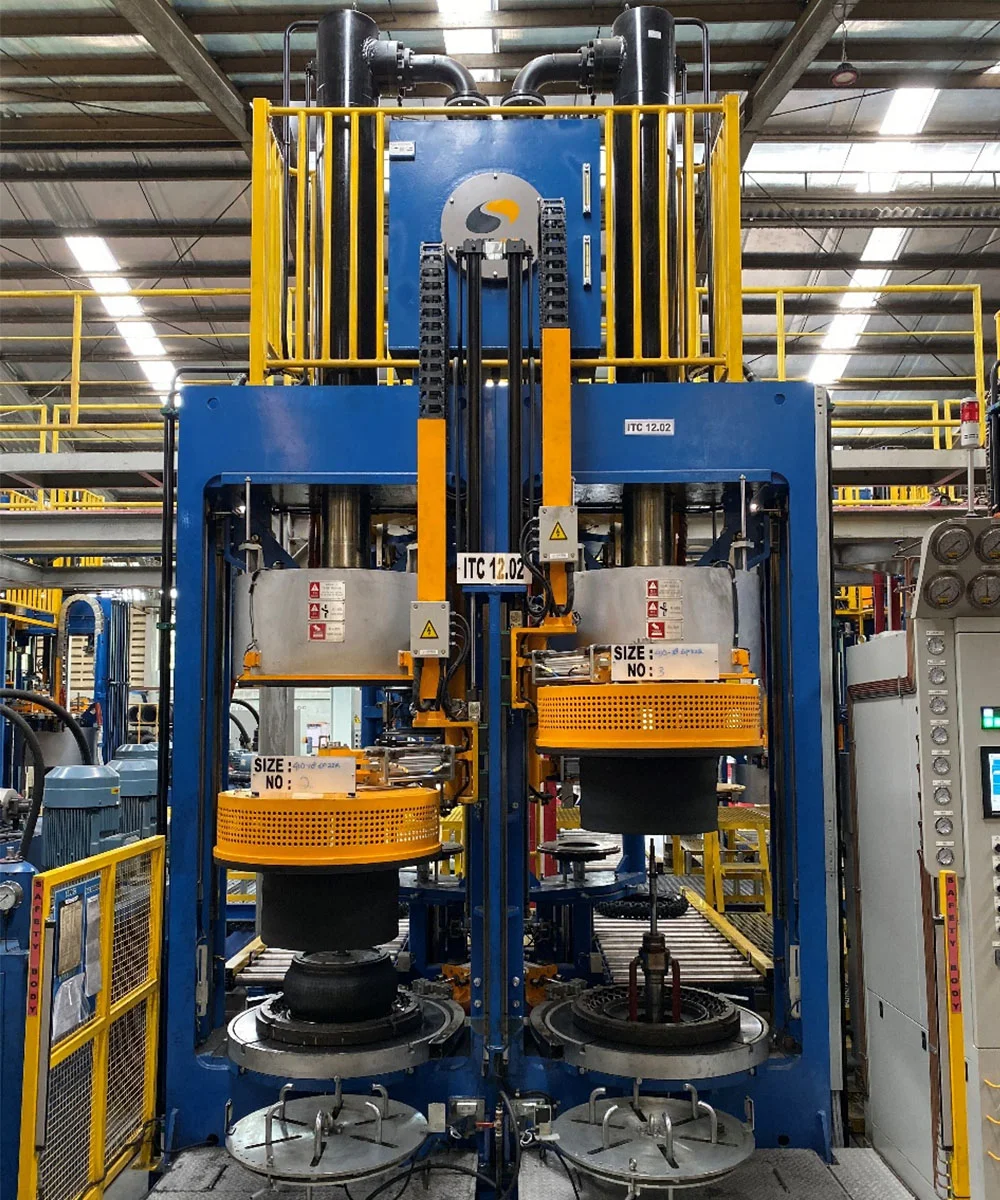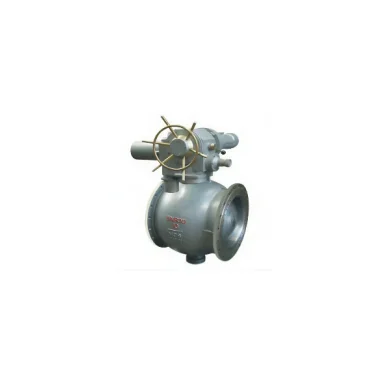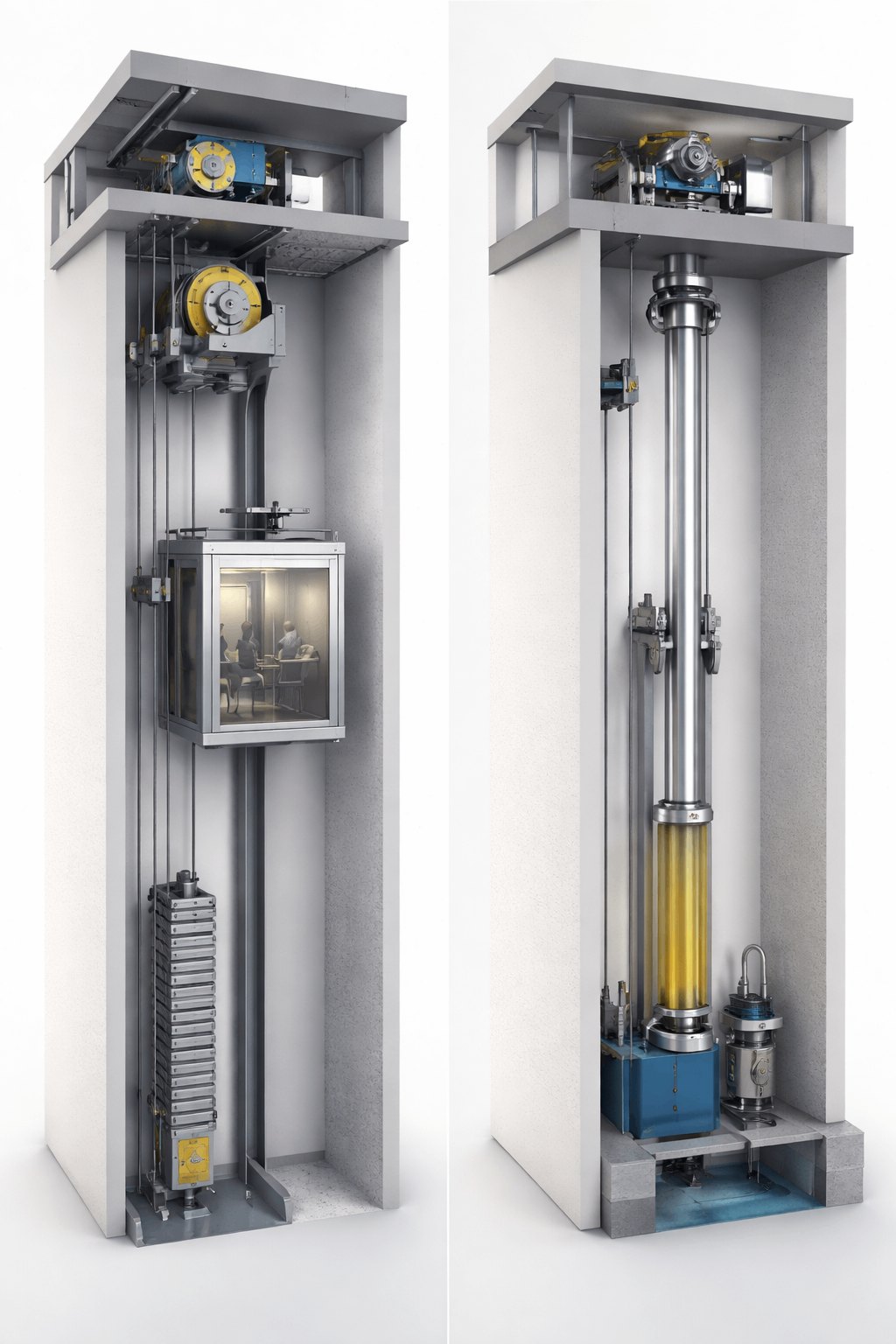Hydraulic Curing Press for High Performance Tire Production
Introduction: Meeting the Demands of Modern Tire Manufacturing
In today' s competitive tire industry, manufacturers are under pressure to produce high-performance tires that meet strict quality, safety, and environmental standards. The curing stage is one of the most critical processes in tire manufacturing, directly impacting the tire’s structural integrity and performance. The use of advanced hydraulic curing presses, such as the SPC100, offers a reliable and energy-efficient solution to meet these demands. In this blog post, SONIWELL, a high quality tire manufacturing equipment exporter, will share the effectiveness of hydraulic curing press for high performance tire production.
Precision Engineering for Long-Term Performance
One of the core strengths of the SPC100 hydraulic curing press lies in its accurate manufacturing quality. Built with robust components and advanced engineering, the machine is designed to ensure stable operation and high precision over long production cycles. This reliability is essential in high-performance tire production, where consistent heat and pressure application during the vulcanization process determine the overall safety and functionality of the final product.
With a frame-type structure and a heating plate diameter of 1220mm, the SPC100 is tailored to accommodate a wide range of molds while maintaining uniform pressure distribution. The maximum mold clamping force of 2000KN provides the power needed for producing reinforced tire designs without compromising equipment longevity.

Fulfilling the Requirements of High-Performance Tire Curing
High-performance tires are engineered for superior grip, durability, and heat resistance. These specifications require precise curing control to ensure uniform tread, optimized sidewall strength, and minimized internal defects.
The SPC100 is designed to meet the curing needs of all high-performance tire categories, including those with advanced tread patterns and reinforced sidewalls. The system can be configured for Post Curing Inflation (PCI)—a technology that enhances the shaping and cooling of tires after the primary vulcanization phase. PCI not only stabilizes the tire dimensions but also improves overall appearance and road performance, which are crucial for ultra-high performance (UHP) and premium segment tires.
Energy Efficiency Through Intelligent Design
Energy consumption is a major consideration in modern manufacturing. The SPC100 stands out with its servo hydraulic system, which precisely controls movement and pressure using minimal power. Additionally, the integration of a thermo group valve optimizes thermal energy distribution, reducing unnecessary heat loss and further cutting down operational energy costs.
This dual approach to energy management significantly lowers the total cost of ownership while aligning with sustainability goals. Tire manufacturers benefit from lower carbon emissions and reduced utility expenses without compromising product quality.
Versatility in Tire Size and Batch Production
One of the defining features of the SPC100 hydraulic curing press is its ability to handle different tire sizes simultaneously. With support for bead sizes ranging from 13” to 20”, the machine caters to both passenger car radial (PCR) tires and specialized variants such as run-flats or performance-oriented tires.
In a market where product variety and quick turnaround times are critical, this multi-size vulcanization capability allows manufacturers to respond swiftly to customer demands. Whether producing limited runs for performance test tires or small batches for OEM partners, the SPC100 offers the flexibility needed for agile manufacturing.
Enhanced Operational Efficiency with Dual Mold Control
Efficiency in tire production is not only about machine speed but also about process integration and control. The SPC100 features a single-mode function that enables operators to control two molds simultaneously. This functionality reduces downtime, minimizes manual intervention, and increases overall throughput without compromising quality.
By centralizing mold management in a user-friendly control system, the SPC100 simplifies operations and reduces the skill barrier for operators. This contributes to higher operational efficiency and smoother production flows, even in plants with variable workforce expertise.
Durability and ROI in Focus
Investment in manufacturing equipment must deliver long-term value. The SPC100 is built to withstand continuous use under high-pressure and high-temperature conditions. With a solid frame and corrosion-resistant components, the machine offers exceptional durability, even in demanding industrial environments.
The combination of precision performance, energy savings, versatility, and reduced maintenance translates to a favorable return on investment (ROI). For tire manufacturers focused on quality and cost efficiency, the SPC100 presents a compelling case.
Conclusion: A Strategic Asset for Modern Tire Producers
The SPC100 hydraulic curing press is more than just a piece of equipment—it is a strategic production asset that supports innovation, efficiency, and quality assurance in high-performance tire manufacturing. From energy-saving systems and dual mold control to PCI compatibility and size flexibility, every feature is engineered to meet the evolving needs of the tire industry.
As the market continues to demand tires with higher performance standards and shorter lead times, investing in technologies like the SPC100 ensures manufacturers stay ahead of the curve—both in capability and competitiveness.
www.soniwellgroup.com
SONIWELL


